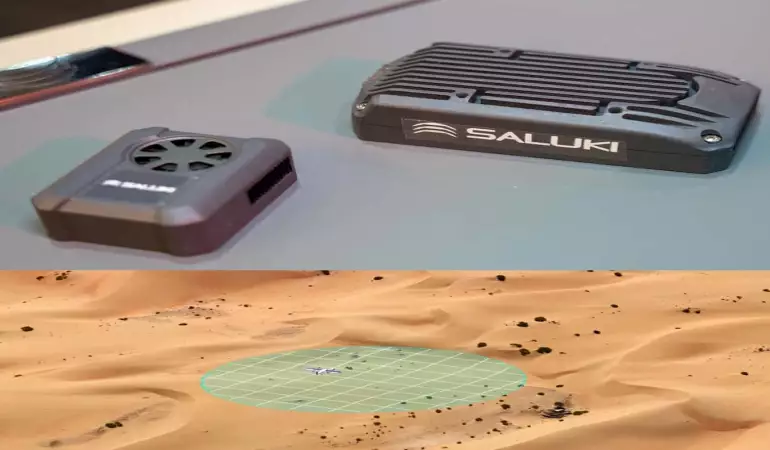Greater aviation safety: UAE solution – GPS-free navigation
The United Arab Emirates (UAE), in an effort to strengthen its aviation sector, has developed navigation technology that does not require GPS.
February 20, 2025 16:29
Limitations of GPS technology
GPS technology has been widely used for many years, especially in the field of airborne navigation systems.
However, it has certain limitations that can be exploited to disrupt accurate location determination or cause erroneous calculations of positions or times.
This poses a significant risk to autonomous drones, commercial aviation, and military aircraft that depend on extremely precise navigation.
For this reason, there is a need for new, more advanced technologies that can ensure reliable navigation even in the absence of GPS signals.
New systems
The technology, called Perceptra, developed by the UAE Institute of Technology Innovation (TII) , is designed to ensure safe and resilient operations in the most challenging conditions.
Perceptra is a system that provides reliable GPS-free navigation, allowing aerial platforms to operate in GNSS-denial environments.
This system, with low navigation error rates, is easily integrated into various platforms in the fields of intelligence, surveillance, reconnaissance and electronic warfare.
Along with Perceptra, another technology, Saluki, was introduced.
Saluki is a high-security flight control technology for autonomous systems. It is a secure, high-performance flight controller and mission computer with Zero Trust architecture.
With its PX4 compatibility, AI capabilities, and 300 TOPS of computing power, Saruki is widely applicable to the control of multiple vehicles for missions that are critical to defense applications.
Potential in various sectors
TII CEO Dr. Najwa Aaraj said that Perceptra and Saluki mark a significant step in autonomous navigation, with the potential to transform multiple sectors.
"From supporting safe travel on commercial flights, search and rescue missions with precision navigation, to efficient urban drone logistics for delivery services in densely populated cities, these technologies have broad real-world application potential," she said.
N. Aaraj also added that TII is also working with the General Civil Aviation Authority (GCAA) to support regulatory efforts in developing advanced methodologies for air corridor design to optimize flight routes and reduce the risk of air incidents in complex urban airspaces.




